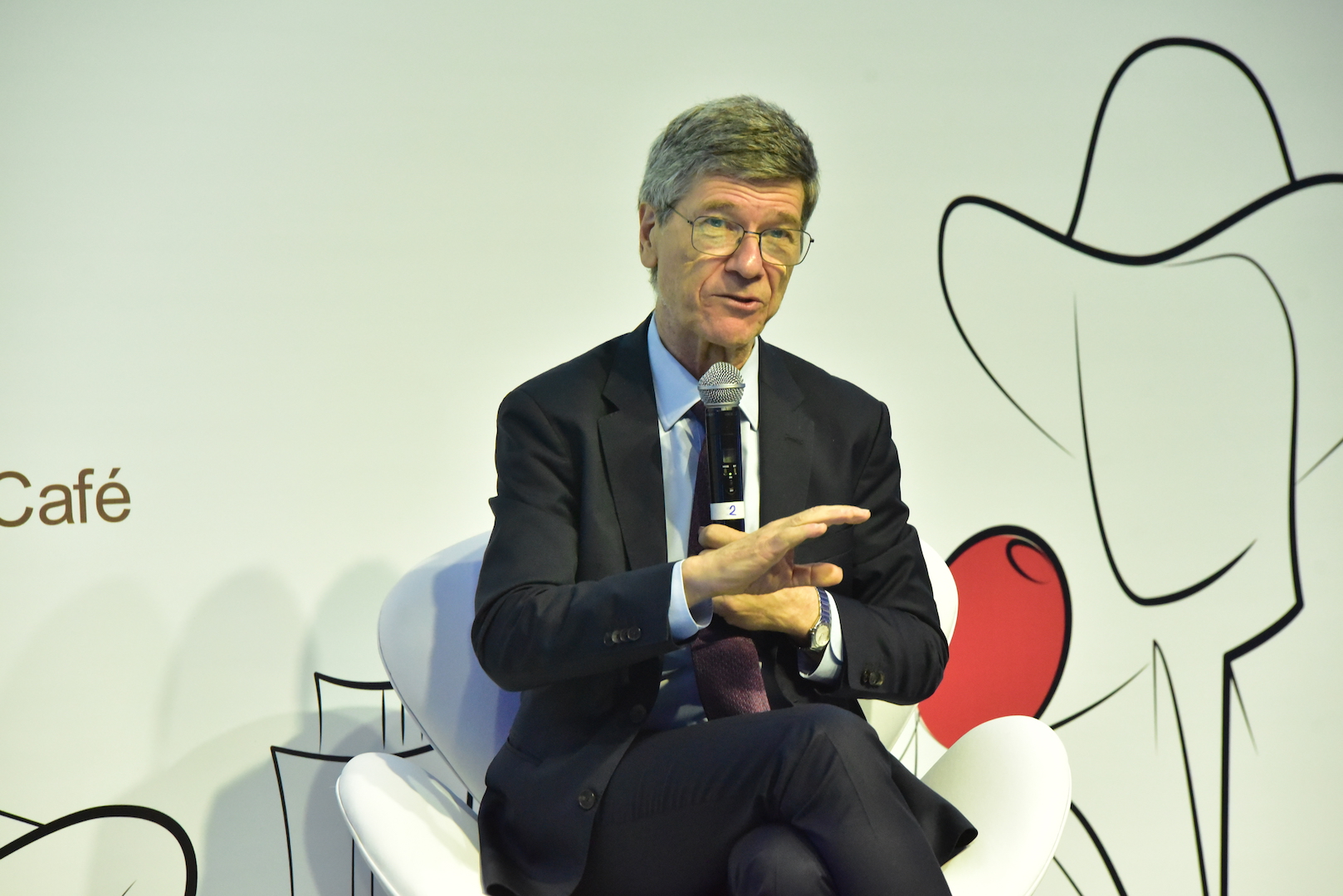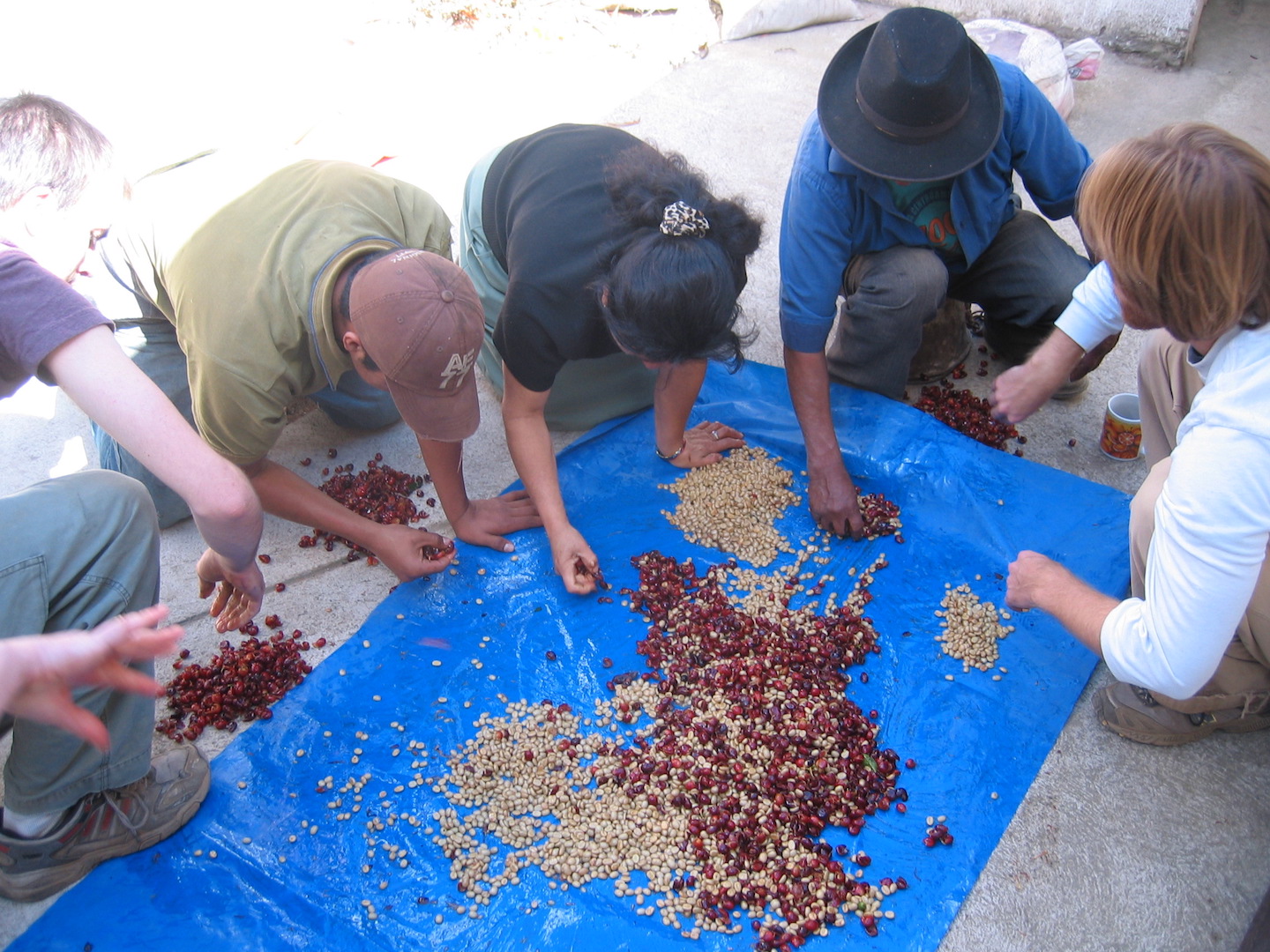SÃO PAULO, BRAZIL – The solution to low coffee prices on global markets may be the creation of a fund which would invest US$10 billion per year in poorer coffee communities, helping increase efficiency and productivity and improve health care and basic social services, said Jeffrey Sachs this week in Campinas, São Paulo.

Sachs, a public policy analyst and professor at Columbia University in the United States, told participants at the second World Coffee Producers Forum (WCPF) that one way to improve the overall prices paid to producers is to increase productivity and efficiency.
“(These) prices are okay for large Brazilian farms, with large volumes to sell but not for small farms in Asia, Africa, and Latin America,” he said.
To help improve productivity, says Sachs, smaller producers need financial help not only from their local governments but from donors and large corporations that profit millions each year with coffee.
The solution would require more financing: not to individual farms but rather to the sector as a whole. Sachs called on large companies such as Nestlé and JAB to become investors in the sector as a whole not only in their companies and their suppliers.
“It looks like a lot, but it’s less than a penny for each cup of coffee sold. This money would remedy the widespread lack of access to basic social services, such as out-of-school children and healthcare that is not appropriate. The puzzle is how to bring resources to coffee producing regions, especially those with low incomes,” Sachs told the audience.
“Producing countries, such as Colombia, India, Malaysia, Costa Rica, Madagascar, Thailand, among others that have low prices, low productivity, little investment, and almost no research, will not be able to keep up, reducing the diversity of types and flavors in the cup,” added the professor.
Results, says Sachs, would come in the short term. “The sector as a whole is profitable but most of the producing countries are not profiting due to differences in productivity. Coffee is a viable product because people like coffee and are willing to pay more, but more of the money should reach producers,” he concluded.
Reaction from producers, roasters, and officials varied. While some applauded the idea of creating a fund to help smaller producers obtain better technology and increase their productivity, others looked at the entity with suspicion.

“It is interesting, but I think it is also dangerous,” said Anna Illy, one of the owners of the specialty coffee IllyCafe, to The Rio Times. “I have seen NGOs, especially in Africa, with lots of money to invest, and their projects do not get off the ground.”
“The first thing you would need (for the fund) is someone you could trust (to manage the money),” she said, adding that her company “already has many projects around the world” and would be wary of investing in a common fund.
“We would have to know our partners before committing,” she concluded, suggesting that maybe a Blockchain system would promote a more transparent path to distributing the funds to those who really need it.
Executive director of the International Coffee Organization (ICO), Jose Dauster Sette also said that Sachs’s Global Coffee Fund idea was “interesting” and “ambitious”. He told The Rio Times that it would have the support of inter-government agencies, but would need the “adhesion of private corporations to make it happen.”
When asked if the fund would benefit small producing countries instead of his native Brazil, Sette said, “There are many small Brazilian coffee producers also struggling to stay afloat, so the fund would certainly have to benefit them as well.”
Among other negative aspects of the proposed Fund, participants said there were risks of mismanagement of such a fund, the long-term maintenance of such aid, and the fact that different countries have different realities, whose problems cannot be solved in unison.
Despite questions about the logistics and the financing of the Sachs Fund project, most of the participants at the Forum agreed that something had to be done about prices paid to coffee producers, or soon they would no longer produce the beans.
“We need action because the problem is clear. There are twenty-five million coffee producers that can barely cover their production costs,” Eugenio Velez, director of Colombia’s Coffee Federation, told the participants.

According to the executive president of Brazil’s National Coffee Council (CNC), Silas Brasileiro, the sector as a whole is not valued. “We are not recognized. They (consumers) don’t know the hardships we face to produce what we produce,” he said.
Among the resolutions decided by the Forum’s participants this year are the creation of a technological platform to create transparency in business and price formulation, the training of producers through technical assistance and rural extension for the professionalization in property management, the development of strategies and campaigns to promote coffee consumption and the development of national plans to achieve more attractive prices for producers.
The Forum’s participants did not reach a consensus as to the Sachs Fund project, asking for more time to discuss the plan.

